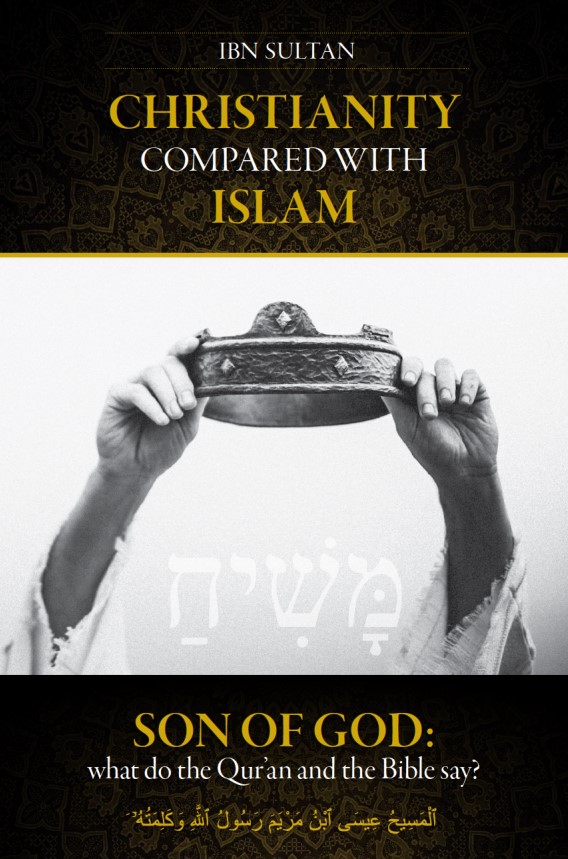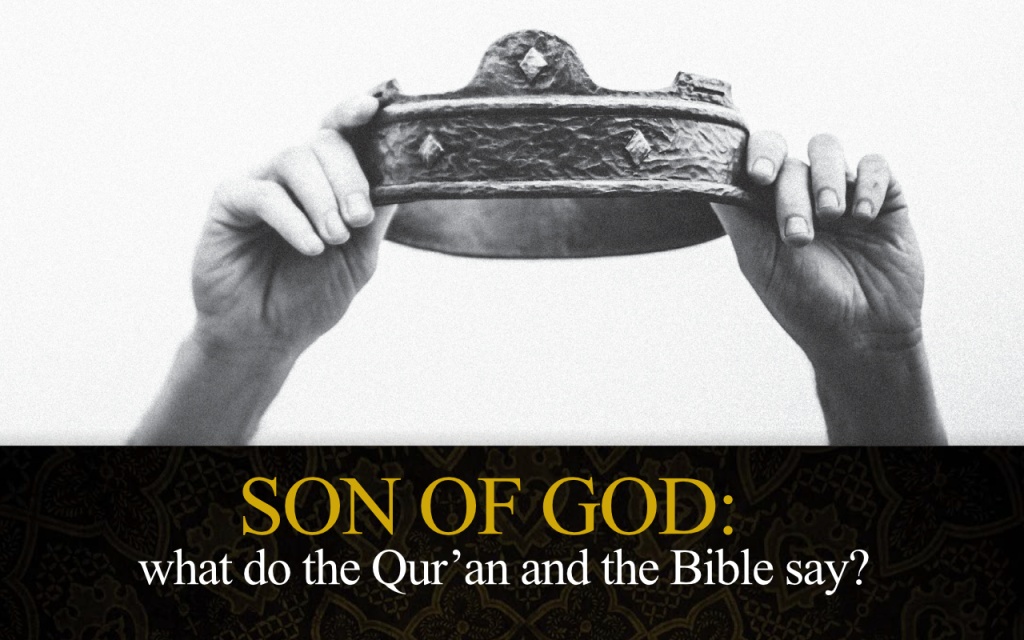Is Jesus the Son of God Because He Was Naturally 'Begotten' by God?
Son of God: what do the Qur'an and the Bible say?


Chapters
« Ch. 3 - Is Jesus the 'Son of God' Because He Performed Outstanding Miracles?
Christian Perspective
One of the Bible’s most famous passages, John 3:16, gives us an insight into the Christian description of Jesus, the Son of God.’ Unfortunately, some English translations of this and other Bible passages have caused some misunderstanding about what ‘Son of God’ really means. Take a look at the following popular translations of this verse:
“For God so loved the world that he gave his one and only Son, that whoever believes in him shall not perish but have eternal life.” (John 3:16, NIV translation)
“For God so loved the world, that he gave his only begotten Son, that whosoever believeth in him should not perish, but have everlasting life.” (John 3:16, KJV, or King James translation)
The original Greek word, translated ‘one and only’ or ‘only begotten’ in these passages, is monogenēs. It’s important that we understand the meaning of this word. After all, in English, the word ‘beget’ is commonly associated with literal reproduction, when a new child is born through the union of their mother and father. But the word monogenēs means something very different.{35}
The word monogenēs is based on two root words: monos (one) and genos (class). It’s sometimes translated as ‘unique’ or ‘one of a kind’. The word occurs nine times in the New Testament, and in each case it’s not concerned with how the son was born, but that there were no others like him.
John 3:16 is not saying God ‘begets’ a child biologically. In fact, moments earlier (John 3:13), Jesus claims to have come from heaven and refers to himself as the ‘Son of Man’ (huios tou anthropou).{36} Rather, John 3:16 references Jesus’ uniqueness; he’s ‘one of a kind’.
Islamic Perspective
The Qur’an frequently and firmly opposes Christians who worship Jesus as the begotten son of God.{37} Such worship seems blasphemous: not only does it treat Allah like a mere human being, but it elevates a created being to receive worship which belongs to Allah alone.
Allah is one, and not created
Surah 112 is a short chapter recited by many Muslims around the world several times every day; it is considered equivalent to reciting a third of the Qur’an. Here, the idea of God naturally ‘begetting’ a son is strongly opposed:
“Say: He, Allah, is One, Allah, the Eternal, He begets not, nor is He begotten, And there is none like unto Him.” (Quran 112.1-4)
Many Qur’anic passages like this oppose an assumed Christian belief that God bore a child. In each case, the Arabic word used is walad – implying a physical son, produced by the union of a mother and father.
The Qur’an also interprets the Christian doctrine of ‘the Trinity’ as a union of God, Mary, and Jesus.{38} This is considered blasphemous for depicting God as a created being (Quran 5.72).{39} In agreement with the Qur’an, Ibn Ishaq (c.704-770) shows how early Muslims perceived Christian belief:
“[Christians] argue that he is God because he used to raise the dead, and heal the sick, and declare the unseen; and make clay birds and then breathe into them so that they flew away … but He is He and Jesus and Mary. Concerning all these assertions the Quran came down.”{40}
Allah has no children and no wife
The Qur’an assumes that ‘Son of God’ is a literal description of how Jesus was born and rejects the identification of Jesus as ‘Son of God’. The Qur’an notes that in addition to Jesus, Christians also call themselves ‘children of God’.{41} The Qur’an interprets this title literally and considers it a blasphemy against Allah.
“He is The Originator of the heavens and the earth! How can He have a child, when He has no wife? He created all things and He is the All- Knower of everything.” (Quran 6.101)
In his commentary on this passage, Ibn Kathir reasons that Allah cannot have a child because he has no wife, since any child must be “the offspring of two compatible spouses”{42}:
“For the child is the offspring of two compatible spouses. Allah does not have an equal, none of His creatures are similar to Him, for He alone created the entire creation. … He has created everything and He is All- Knower of all things. How can He have a wife from His creation who is suitable for His majesty, when there is none like Him? How can He have a child then? Verily, Allah is Glorified above having a son.”
Comparison
Understanding the word monogenês
The New Testament uses the word monogenēs to describe Isaac, who is called the “only son” of Abraham.{43} This might seem strange, since the Bible plainly describes how Abraham fathered two sons: Isaac and Ishmael.
The book of Hebrews (Hebrews 11:17) says, “by faith Abraham … offered up Isaac, and he who had received the promises was in the act of offering up his only son.”
The word monogenēs is used here to describe Isaac as a unique son. Isaac’s miraculous birth to a barren mother, Sarah, uniquely fulfilled God’s promise to Abraham.{44} It is in this sense of ‘uniqueness’ that the word is later used of Jesus.{45}
Although some people accuse Christians of believing God fathered a literal son, this is a significant misunderstanding. Christian creeds written centuries before the advent of Islam insist that Jesus was not created at all. The Nicene Creed of 325 AD carefully describes Jesus as ‘begotten, not made.’
The Christian church has never believed Jesus to be God’s biological son. The New Testament description of Jesus as the ‘only-begotten’ speaks of something far more profound: He is unique, the ‘one and only’.
Questions to consider
- Read the Bible passages, John 3:16 and Luke 7:12. These each use the same Greek word (monogenēs) to describe an ‘only’ or ‘unique’ child. Why do you think this word is chosen in each case?
- Does the Bible teach that God begets (i.e., reproduces to give birth to a child)? If so, where do you see this?
- According to the Qur’an, Mary bears a son without having a husband. Why then does Allah need a wife to have a son?
- Can you find any Bible passages that teach, or imply, that Mary is the wife of God?